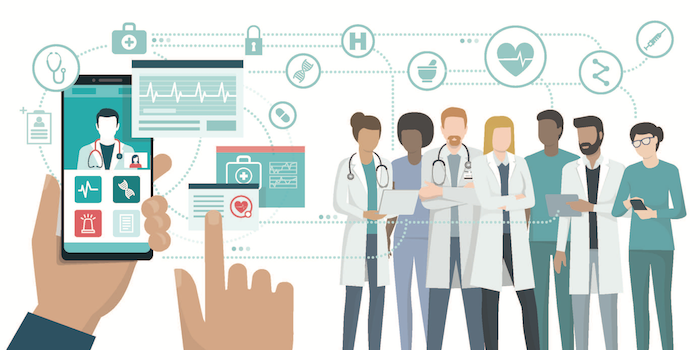When you stop to think about it, the healthcare happenings of 2018 had some of the main elements of a great superhero movie.
There was conflict—think healthcare professionals and the increasing EHR burden. There was disruption—Amazon, Apple, telehealth and the rapid emergence of digital therapeutics. And, of course, there were the heroes—patients. (Not to mention dedicated providers and new breakthrough therapies.)
If that was 2018, what plot twists are in store for us in 2019?
Here are my three predictions:
Value-Based Care Will Become a Reality
To paraphrase H. Ross Perot, 2019 will be the year the healthcare industry starts doing value-based care instead of just talking about it.
The trigger? MACRA incentives and penalties commence in 2019, which means this will be the year when financial rewards—or conversely pain—is actually felt by providers.
MACRA is where the rubber meets the road—and the bottom line—when it comes to quality. And it’s a zero-sum game. This year, bonus payments for those providing superior quality will come at the direct expense of those who are underperforming.
The good news is that the industry has been preparing for a value-based system, and many physicians have embraced the new paradigm of delivering quality of care versus quantity of care. For perspective, nearly a quarter of U.S. physicians say they’re providing value-based care, and another 29% say they’ll get there in the next three years.
Tech Helps Empower Patients
Technology is revolutionizing how we live our lives and healthcare is no exception. In fact, nearly all physicians are using technology to have better conversations with patients.
This year and beyond, we’ll see more personalized communications based on a patient’s specific medical history. We’ll see more video, AI, chat bots, smart speaker applications and an increasing focus on “teachback” material intended to confirm learning. These communication innovations will collectively enable patients to become more active participants in healthcare decision making and become true partners in care with their healthcare providers.
One day we may even be able to see avatar providers from the convenience of our smartphone screens—a whole new wave of telemedicine. (Think Alexa and Siri—but with a virtual MD with your personal physician’s voice!)
Five-Star Customer Service Comes to Healthcare
Imagine you’re traveling and as soon as you land, your hotel sends you a welcome greeting on your phone. The hotel asks you if you would like any food to be delivered to your room upon your arrival. With a few taps, you have food prepared to order in your room when you arrive. The food is hot because the kitchen was able to use GPS tracking to know when you were scheduled to arrive and when to start your order. This is real, and it’s what Virgin Hotels is doing to keep its customers happy and loyal.
Delivering this “wow” experience will be increasingly important for healthcare in 2019. And there are some great opportunities for practices, hospitals and health systems to deliver the personalized care and Amazon-like, tech-enabled experience patients want—and expect.
For example, in a recent survey 60 percent of patients said that they expect providers to text them or participate in online chats between appointments. And 57% said they expected providers to send automated text, voice or email reminders to urge them to take actions such as scheduling appointments or taking medications. We live in a push notification-enabled world, and personalized medication and appointment reminders in particular stand to save everyone time and increase productivity.
I look forward to seeing how 2019 unfolds and reporting back on whether my predictions have been broadly embraced, or whether the pace of healthcare innovation is far slower than expected (or needed)!

